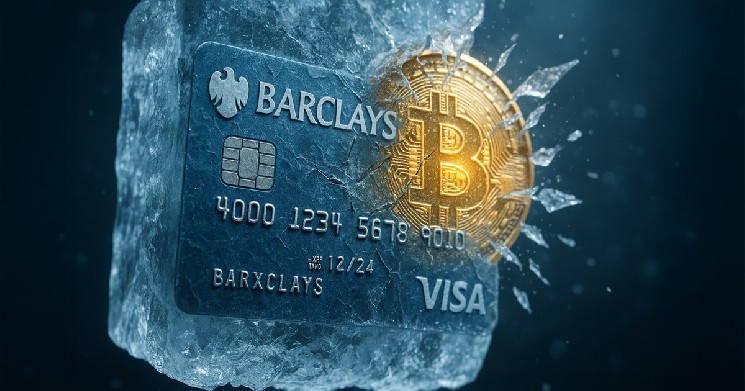Barclays financial institution has introduced it’s going to block clients from utilizing Barclaycard bank cards to purchase crypto beginning June 27
The transfer was quietly confirmed in a newly up to date FAQ part on the financial institution’s official web site.
In accordance with Barclays, the choice stems from considerations over client safety and reimbursement dangers. The financial institution warned that crypto value volatility may expose customers to money owed they could be unable to handle.
The financial institution additionally identified that digital property don’t fall underneath UK monetary safeguards, and affected clients would have restricted recourse if a transaction goes improper.
It defined:
“We’re doing this as a result of a fall within the value of crypto property may result in clients discovering themselves in debt they will’t afford to repay. There’s additionally no safety for crypto property if one thing goes improper with a purchase order, as they’re not coated by the Monetary Ombudsman Service and Monetary Providers Compensation Scheme.”
This transfer echoes broader regulatory discussions within the UK, with the Monetary Conduct Authority (FCA) not too long ago exploring methods to limit crypto purchases made with borrowed funds.
The regulator has highlighted the dangers related to leveraging credit score to put money into high-volatility property, notably for inexperienced retail traders.
Barclays’ resolution, nonetheless, arrives simply months after the financial institution disclosed a $131 million stake in BlackRock’s iShares Bitcoin Belief (IBIT). This funding locations Barclays among the many rising listing of establishments gaining publicity to identify Bitcoin ETFs within the US.
In the meantime, the distinction between limiting buyer entry and increasing its crypto holdings factors to an rising divide in how conventional monetary establishments method the crypto sector.
Whereas the brand new coverage could shield customers from dangerous borrowing practices, it may additionally encourage traders to make use of non-traditional platforms.
Contemplating this, trade analysts predict a rising demand for different on-ramps, corresponding to fintech functions and decentralized providers that bypass standard banking methods.


